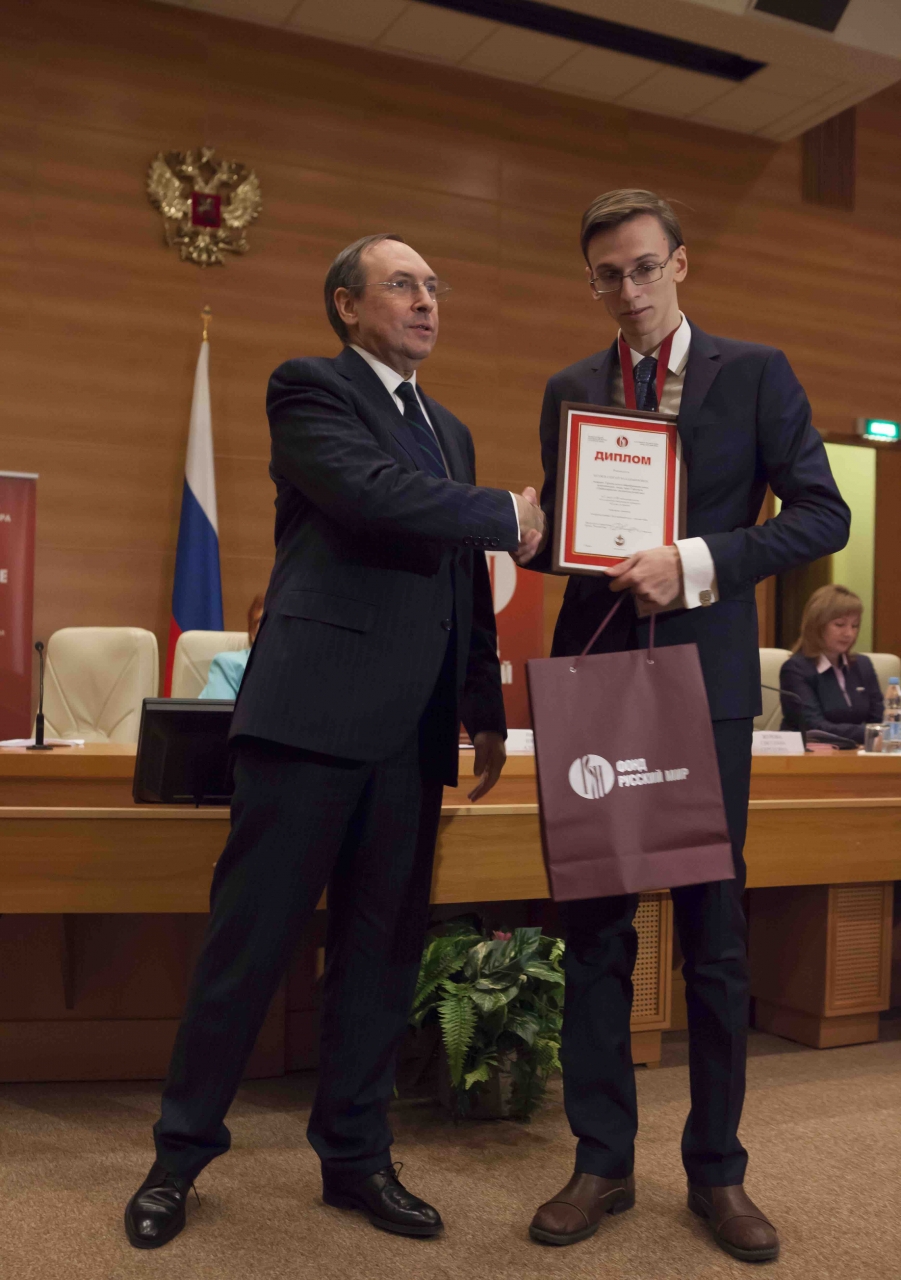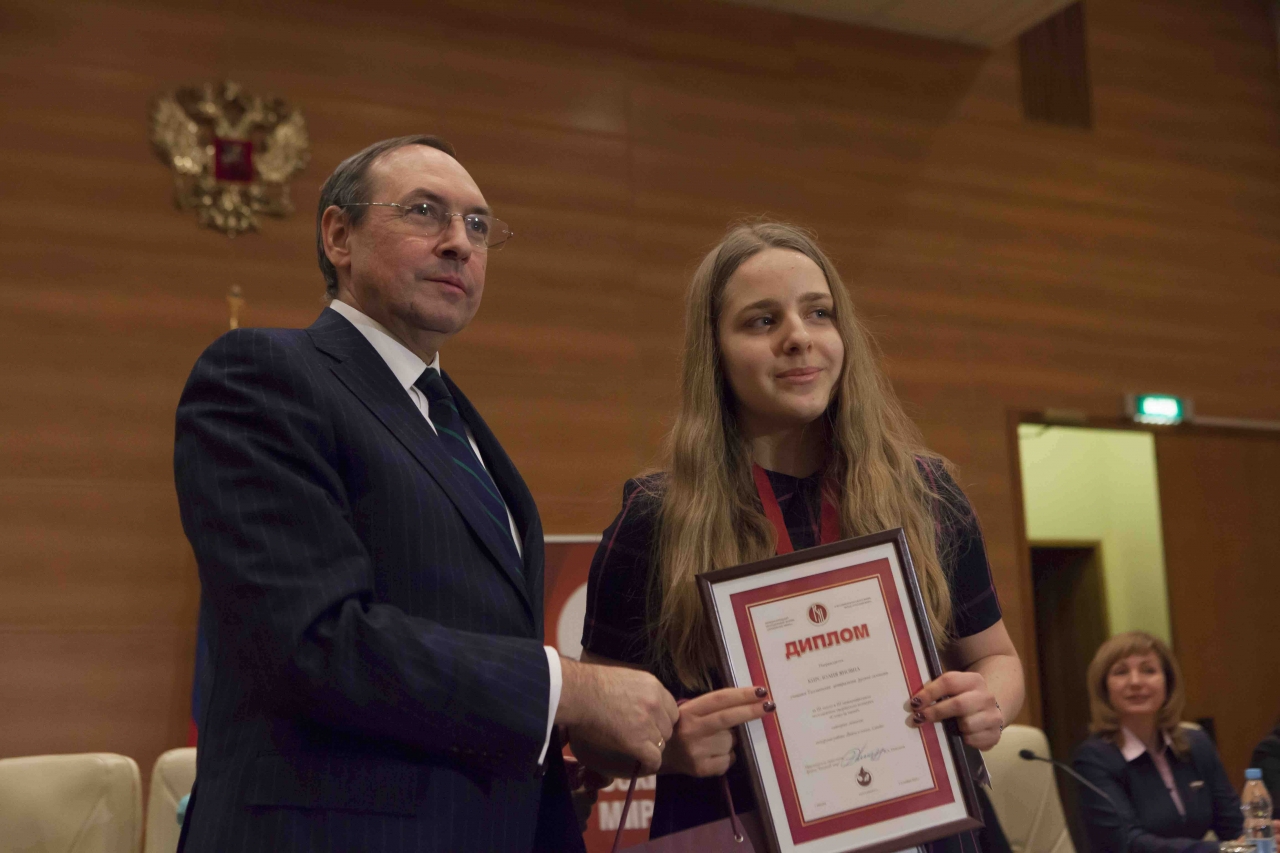“Generation of the World” Youth Forum, which was held in the framework of the X Russian World Assembly, gathered a couple of hundred young people from dozens of countries. One of important events of the Festival was the International Youth Arts Contest “It is for us to decide!” (Slovo za Nami); schoolchildren and students from 43 countries took part in it. We asked the winners of the contest Sergei Belyayev from Tiraspol and Julia Kirs from Tallin to share their impressions.
Schoolboy from the Transdniestrian Moldovan Republic Sergei Belyayev is studying at the Tiraspol General Education Theoretical Lyceum. He is interested in biology and chemistry, his dream is to be a doctor. Sergei got the first place in the essays’ contest for his work.
– Your essay was named “Immortal Regiment – a Remarkable Idea”. Why did you choose this topic?
– What comes to the topic, I considered it to be very fresh and relevant. A topic, where you can express your own thoughts without being afraid to repeat something that was already said once. In addition, the idea of “Immortal Regiment” unites all the Russians and citizens of former USSR. As a citizen of the “near abroad”, I wanted to share my thoughts about the campaign.
– What do you think, how can the Association of Youth and Students, Learning Russian created at the “Generation of the World” Youth Forum be useful?
– Association of Youth and Students, Learning Russian was created at the “Generation of the World” Youth Forum and now the Statutes of the Association and its purposes are being discussed. It is a great step forward in working with the youth. It is very nice that by joining this Association, one can be aware of events dedicated to youth cooperation and to communicate with people of their age, who live in different corners of the world and who study and love the Russian language.
– What stuck to your memory during the “Generation of the World” Youth Forum the most? What was the most interesting?
– Broad geography of participants, which gave an opportunity to know about views of people of different cultures’ and nationalities about the world. Vyacheslav Nikonov’s speech also had a great impression on me and made me think about choosing my future profession once more.
Julia Kirs from Estonia is studying at the Tallin Central Russian Gymnasium and she got the third prize. Apart from Russian and Estonian, she also speaks English and German. She has visited eight countries in the framework of international youth exchanges.
– Your essay was entitled “War and Life. Faith”. Why did you choose this topic? What is so interesting about the language for you and how are you going to use it in your future career?
– I chose this topic as it was very easy for me. I didn’t have to invent anything. I just described a part of my family’s experience through my worldview. I am glad it got such a high grade.
What comes to the Russian language, I can say it is a natural element of the world. There is the Sun, the Sea and the Russian language. I speak many languages, but Russian is my mother tongue and I perceive everything else through it.
– What stuck to your memory during the “Generation of the World” Youth Forum the most? What was the most interesting?
– The event itself was magnificent. I met a great number of people and despite the time of the Assembly was limited, these acquaintances have already been continued in my life – we have started exciting correspondence with many of my new friends.









